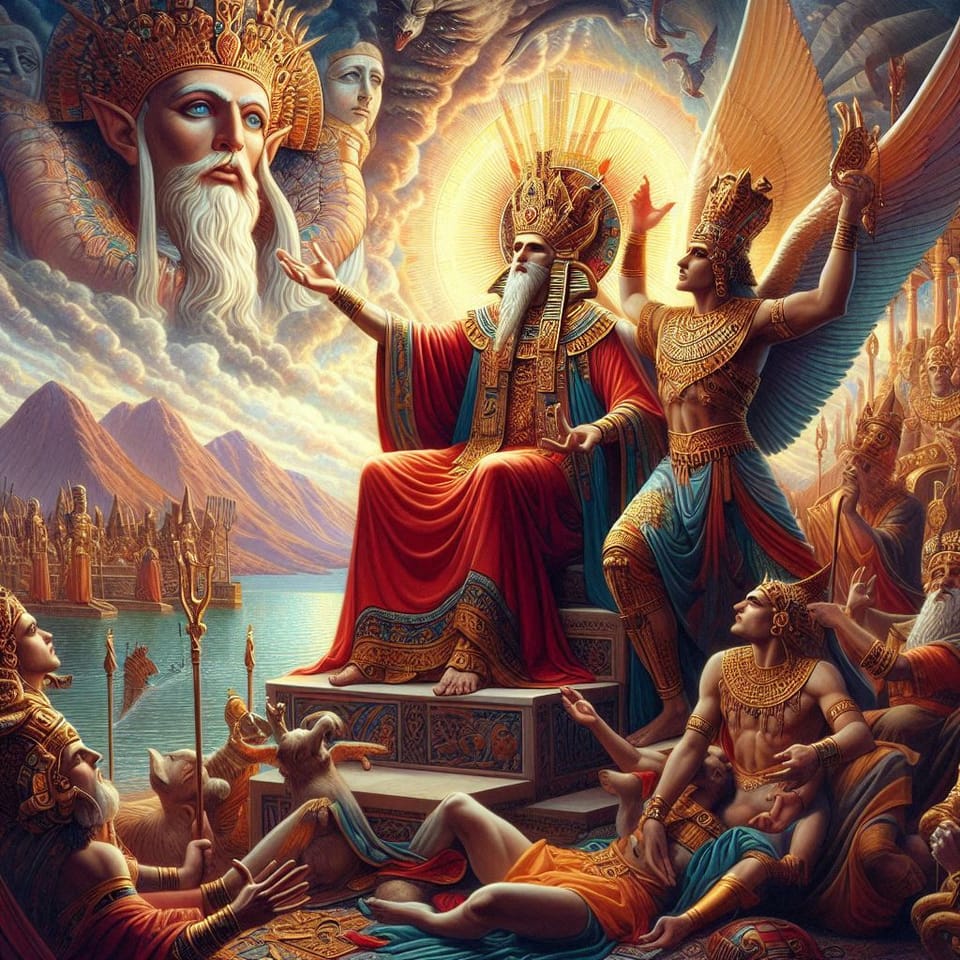The King's Dream: A Vision of Divine Destiny

Long ago, in the storied lands of ancient Egypt, there lived a king named Thothmes—a ruler beloved by the gods and destined for greatness. Though not the Thothmes famed for his conquests of Syria, Nubia, and the nine Archer-tribes, this Thothmes was no less remarkable. Even as a child, his beauty and vigor echoed the divine form of Horus, and his prowess in the arts of hunting and war marked him as a hero in the making.
Thothmes was known for his fearless adventures. He roamed the vast deserts both north and south of Memphis, chasing wild game with the speed of the wind. Whether pursuing lions or deer, or mastering the art of the chariot, he was a solitary figure—often accompanied by just one or two trusted companions, treading paths known only to him in a land where few dared to venture.
When the relentless desert heat proved too much, Thothmes and his followers would seek refuge in the cool shade of a great, enigmatic monument—the mighty statue of Harmachis. This awe-inspiring figure, carved from living rock and part lion, part man, with a death-dealing snake poised on his brow, was more than a mere statue. Revered as the Sphinx and the Father of Terrors, Harmachis was a symbol of divine power and protection, drawing prayers and sacrifices from temples across Egypt.
One fateful day, before Thothmes ascended to the throne as Horus the Living One, he found himself alone in the vast desert at noontide. Overwhelmed by the fierce heat and blinded by the sun, he sought solace in the cool shadow cast by the great god. As fatigue claimed him, sleep descended, and with it, a vision—a dream that would change his destiny.
In this dream, Thothmes stood before the colossal figure of Harmachis, but now the stone had given way to living divinity. The god, radiant and alive, spoke with a gentle authority, his words filled with the warmth of a father's blessing:
"See now, O my son Thothmes, look at me, behold me. I am thy father, I who am Harmachis, and Ra, and Khepera, and Atmu also.
For I am the Sun-god to whom all lands are subject. Through me alone shall the kingdom of Egypt come to thee; thou shalt wear the White Crown of the South Land and the Red Crown of the North Land, thou shalt sit upon the throne of Geb the inheritor.
To thee shall belong the whole land in its length and breadth, that land which the universal Lord makes glorious. Want and trouble shall never come nigh thee, for gifts shall be brought to thee from every country, near and afar; the duration of thy life shall be for many years; my face shall be towards thee and my heart shall incline to thee if thou wilt do for me that which I desire of thee."
As Thothmes listened, he noticed the divine figure lay half-buried in the endless sands, as if struggling to break free from the desert's grip. The god’s head emerged from the shifting dunes, a poignant symbol of divine power awaiting revival. The vision was both a promise and a command—a call to action from the very heart of the divine.
Before the dream could impart more, Thothmes felt the grip of sleep loosening. Awakening from this profound experience, the echoes of the god’s words lingered in his soul. The vision had foretold his destiny: a future where Egypt would flourish under his rule, guided by divine favor and protected by the blessings of the gods.
Thus, the dream of Thothmes stands as a timeless testament to the intersection of mortal ambition and divine destiny—a moment when a future king was called forth by the living embodiment of the gods, setting him on a path that would shape the fate of Egypt for generations to come.